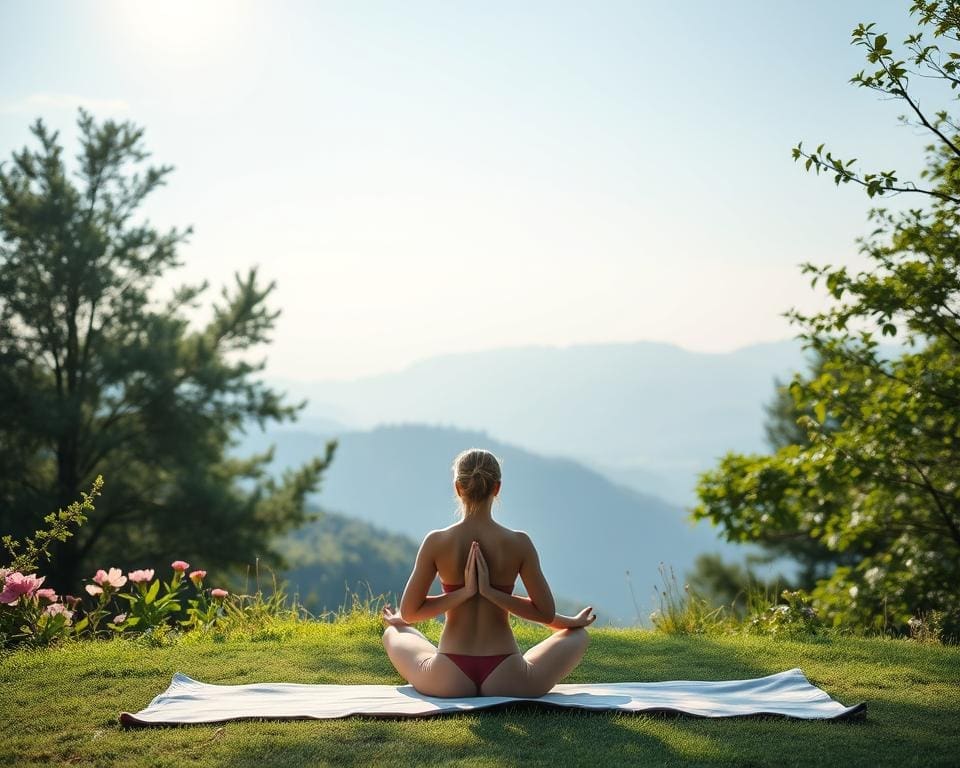In today’s fast-paced world, finding effective stress management techniques is essential for maintaining our mental health. Yoga for relaxation and stress relief offers a holistic approach that cultivates a sense of calm and peace. By engaging in this ancient practice, individuals can learn to regulate their responses to stress, enhancing their overall wellbeing. Through mindful breathing and gentle postures, yoga encourages practitioners to connect with the present moment, fostering mindfulness for stress management.
Numerous studies have illustrated how consistent yoga practice can reduce stress markers, particularly by lowering cortisol levels in the body. This powerful blend of mental and physical exercises creates the perfect environment for tranquillity, helping to combat anxiety while promoting a healthier lifestyle.
The Benefits of Yoga for Relaxation and Stress Relief
Yoga serves as an effective pathway to achieving deeper levels of relaxation and managing stress. The practise encourages a harmonious balance between the mind and body, yielding a multitude of benefits that can significantly enhance overall wellbeing.
Enhancing Mental Wellness through Yoga
Mental wellness yoga empowers individuals to navigate the challenges of everyday life with a sense of calm. Regular participation in yoga sessions has been shown to improve mood, reduce symptoms of anxiety, and foster emotional resilience. Engaging in these relaxation techniques can profoundly affect brain function and support a balanced emotional state.
Physical Benefits and Stress Reduction
Through various stress relief exercises, yoga helps release physical tension stored within the body. Improved flexibility and muscle strength accompany the yoga practice, which collectively promotes a state of relaxation. Participants often report feeling lighter and more agile, contributing to an overall sense of peace while combating daily stressors.
Improved Sleep Quality
A key advantage of incorporating yoga into a daily routine is its potential for improving sleep quality. Research indicates that individuals practising yoga consistently experience deeper and more restorative sleep patterns. The calming effects of yoga not only soothe the body but also encourage a tranquil mind, aiding in the transition to restful slumber.

Yoga for Relaxation and Stress Relief: Key Practices
Incorporating specific practices into your yoga routine can significantly enhance relaxation and stress relief. Emphasising calming yoga poses and mindful breathing exercises creates a holistic approach to managing stress levels. Below, we explore effective techniques that cater to both physical and mental well-being.
Calming Yoga Poses for Stress Relief
Calming yoga poses serve as a pathway to tranquillity and can ease the demands of daily life. Key poses include:
- Child’s Pose: This gentle stretch calms the nervous system and encourages a sense of safety.
- Forward Bend: A relaxing pose that helps alleviate tension in the spine, promoting deep relaxation.
- Legs-Up-the-Wall: This restorative position allows for blood flow back to the heart, reducing fatigue and stress.
Each of these calming yoga poses can be adjusted to fit individual comfort levels, ensuring that practitioners of all abilities can find solace in their practice.
Mindful Breathing Exercises for Relaxation
Complementing your yoga practice with mindful breathing exercises enhances the experience of relaxation and presence. Various techniques can be easily integrated into daily habits:
- Diaphragmatic Breathing: Focuses on deep breathing that engages the diaphragm, facilitating a greater intake of oxygen and fostering calmness.
- 4-7-8 Technique: Involves inhaling for four counts, holding for seven, and exhaling for eight. This method creates a powerful tool for stress management and relaxation.
Integrating these mindful breathing exercises with your yoga practice allows for improved mental clarity and emotional resilience, making them essential for anyone seeking meditation for relaxation and stress relief.
Incorporating Mindfulness and Meditation in Your Yoga Practice
Integrating mindfulness and meditation into your yoga practice can significantly enhance your ability to achieve relaxation and manage stress effectively. By cultivating awareness during your yoga sessions, you invite a deeper connection to each movement and breath. This mindfulness transforms your practice into a more enriching experience, allowing you to experience the profound calming effects of yoga as a whole.
Taking time for seated meditation after your yoga practice offers an opportunity to deepen the tranquillity you’ve achieved on the mat. Techniques like guided imagery and body scan can be particularly beneficial for promoting relaxation and reducing stress. These practices encourage you to explore your inner landscape, fostering a greater sense of peace and well-being that extends beyond the mat into daily life.
Ultimately, embracing a holistic approach that combines yoga, mindfulness techniques, and meditation forms a powerful triad for stress management. This integration not only enhances mental wellness but also equips you with tools to navigate life’s challenges with greater ease. Through consistent practice, the journey towards inner calm can become a fulfilling part of your daily routine, inviting persistent joy and serenity into your life.








